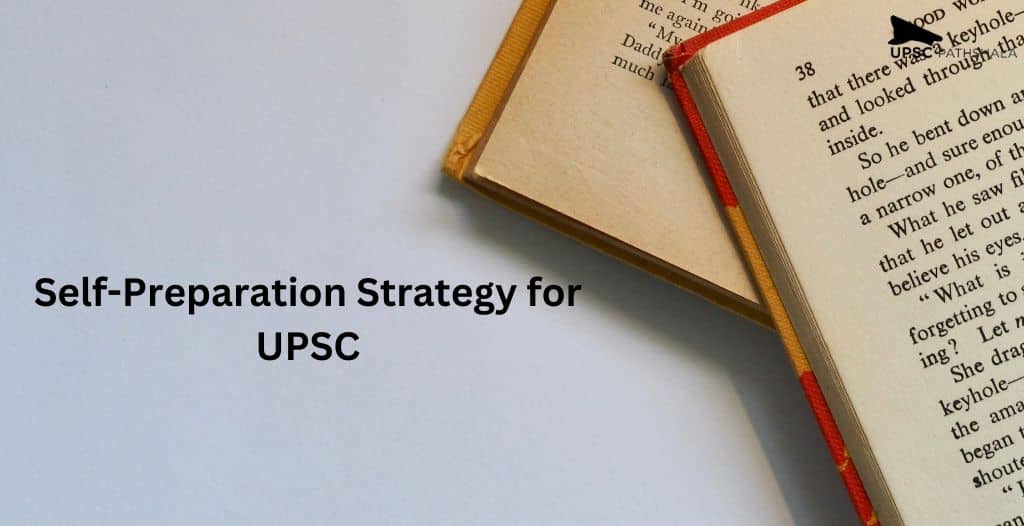One of the most common misconceptions regarding the civil
services exam is that self-study or home study does not produce the required
results when it comes to passing the IAS Exam. Many IAS toppers have emerged
successful throughout the years by studying at home and devoting more time to
self-study.
Every year, thousands of aspirants take the UPSC Civil
Services test. This exam is divided into three parts: preliminary, mains, and
personality test. Although many candidates seek help from coaching institutes,
it is not required.
Some candidates assume that it is difficult to qualify for
the UPSC exam without participating in coaching or classroom programmes. There
are countless examples of applicants who have qualified for the UPSC CSE
examination without taking any classroom courses or coaching by using
self-study and material available on the internet. It is vital to exert effort,
but knowing where to exert it makes all the difference in your preparation. In this blog, we will discuss how to prepare
for UPSC through self-study.
How to
start preparation for IAS without coaching?
Following are the parameters that if followed religiously
will help you crack the UPSC Civil Services in the first attempt. Stay till the end
to know more about the Self-Preparation
Strategy for UPSC CSE.
1. Get to know about the
UPSC CSE syllabus and exam pattern.
The UPSC Civil Service examination is separated into three preliminary
phases: Mains, Interview, and Personality Test. Both stages have their own
curriculum. However, it would be advantageous if you began preparing for
prelims and mains throughout your undergraduate years. Examine the curriculum
and evaluate the topics based on your strengths and weaknesses. Make sure you
have all of the necessary study materials and that you give each subject
adequate time.
2. Make
a timetable and stick to it.
Making a UPSC Exam timetable or strategy is one of the best
strategies to begin your preparation. It will help you use and manage your time
more effectively. You must stick to the schedule and divide your days into
chunks, such as half time for statistics, half time for response writing,
current affairs revision, and half time for the interview. It's also a good
idea to double-check if the schedule is acceptable and comfy. It is also
advised not to put yourself under any stress during the preparation process, as
this could harm your health.
3. Prepare
your current affairs
One of the most important components of the UPSC CSE test is
current affairs. It is very important in the UPSC preliminary tests and
interviews. To stay current, you can use reliable sources like newspapers,
journals, and gazettes. In addition, there are certain websites that will help
you in preparing current affairs. You can review your current affairs at any
time, including if you're travelling or travelling a great distance, which will
save you a tonne of time.
4. Join
the mock test series
The mock test series significantly contributes to your level
of preparation and a better understanding of the subjects. By giving you frequent, time-bound subject
targets, it pushes you to maintain consistency while also assisting you in
identifying your areas of strength and weakness. You are given a clear image of
the areas of the curriculum that require additional focus. Your caution and
foresight in choosing the suitable questions and quantity of questions are
essential because Papers I and II use the negative marking scheme.
5. Make
notes and revise
Making proper notes is an important component of excellent
preparation. When studying for the exam, you must take concise and useful
notes, whether from newspapers or conventional textbooks. Also, make sure to
review what you've learned on a frequent basis. The more you revise, the more
you will remember.
6. Choose the
right Optional Subject
Many applicants are still perplexed about which optional subject
to pursue. Candidates are often wondering what subjects they may choose as optional
to increase their scores. The selection of topics is the first step in that
direction because it increases the likelihood of a choice, and the marks are
important components in deciding the rank. The most popular majors among
candidates are public administration, geography, sociology, political science,
philosophy, and history. More than 70% of Civil Service applicants choose these
disciplines. These subjects overlap with general courses, making them easier
for students to manage—the most popular option among them is Public
Administration.
7. Have faith and
stay motivated
Going solo in your IAS preparation needs a lot of guts. However,
if you study often and plan carefully, you will almost certainly succeed. Work
hard and wisely, and never lose sight of your goals.
Bottomline
With a few lakh
candidates, the IAS Exam is one of the most difficult examinations. As a
result, it should not be taken lightly. In addition, aspirants must create
goals and prepare intellectually and physically for the UPSC exam. You must
devote sufficient time if you are to pass the exam by self-study. You can begin
IAS Exam preparation by making a strategy. This will assist you in making
better use of and managing your time. Set aside a couple of hours per day for
study and the other half for revision. Best of luck.

